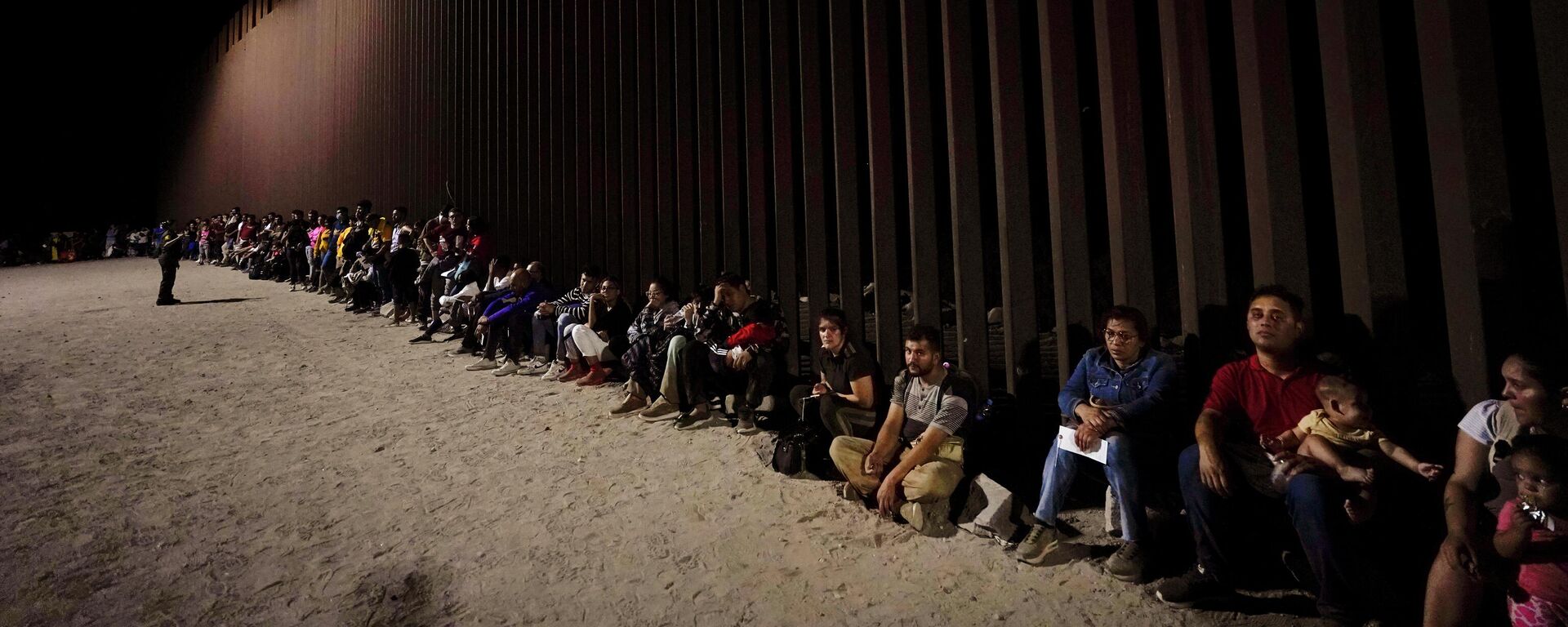Humanitarian Crisis Unfolds in Mexico as Biden Dithers Over Fixing Border Crisis
08:41 GMT 14.05.2023 (Updated: 10:41 GMT 14.05.2023)
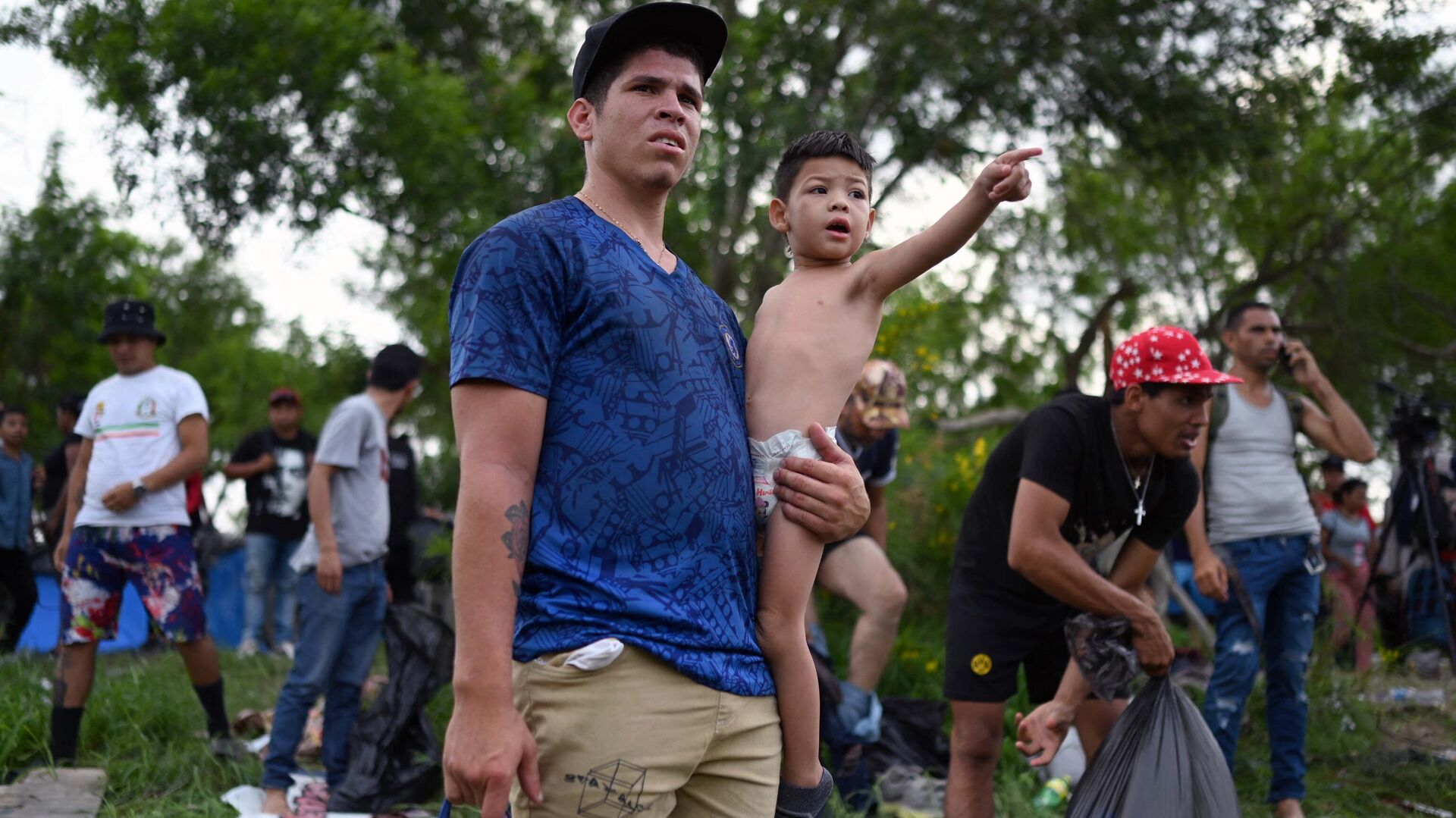
© AFP 2023 / ALFREDO ESTRELLA
Subscribe
The US-Mexico border has seen record numbers of illegal entries since President Joe Biden took office, with his administration under fire for failing to tackle the crisis. One of Biden's new policies, discarding the public health emergency order known as Title 42, was seen as heralding a possibly massive surge of migrants.
As the US attempts to get a grip on the migrant crisis raging at its southern border, a relentless humanitarian crisis is unfolding in northern Mexico.
A bottleneck of thousands of asylum seekers trying to enter America has formed near the US border. Over the past month, migrants have arrived, after crossing the Rio Grande, from as far away as Venezuela, and they await asylum interviews in an encampment which has become their refuge. The migrants lack food and clean water, are forced to sleep rough in makeshift tents that offer little protection from the rain and use the surrounding area as one large latrine, humanitarian organizations have warned.
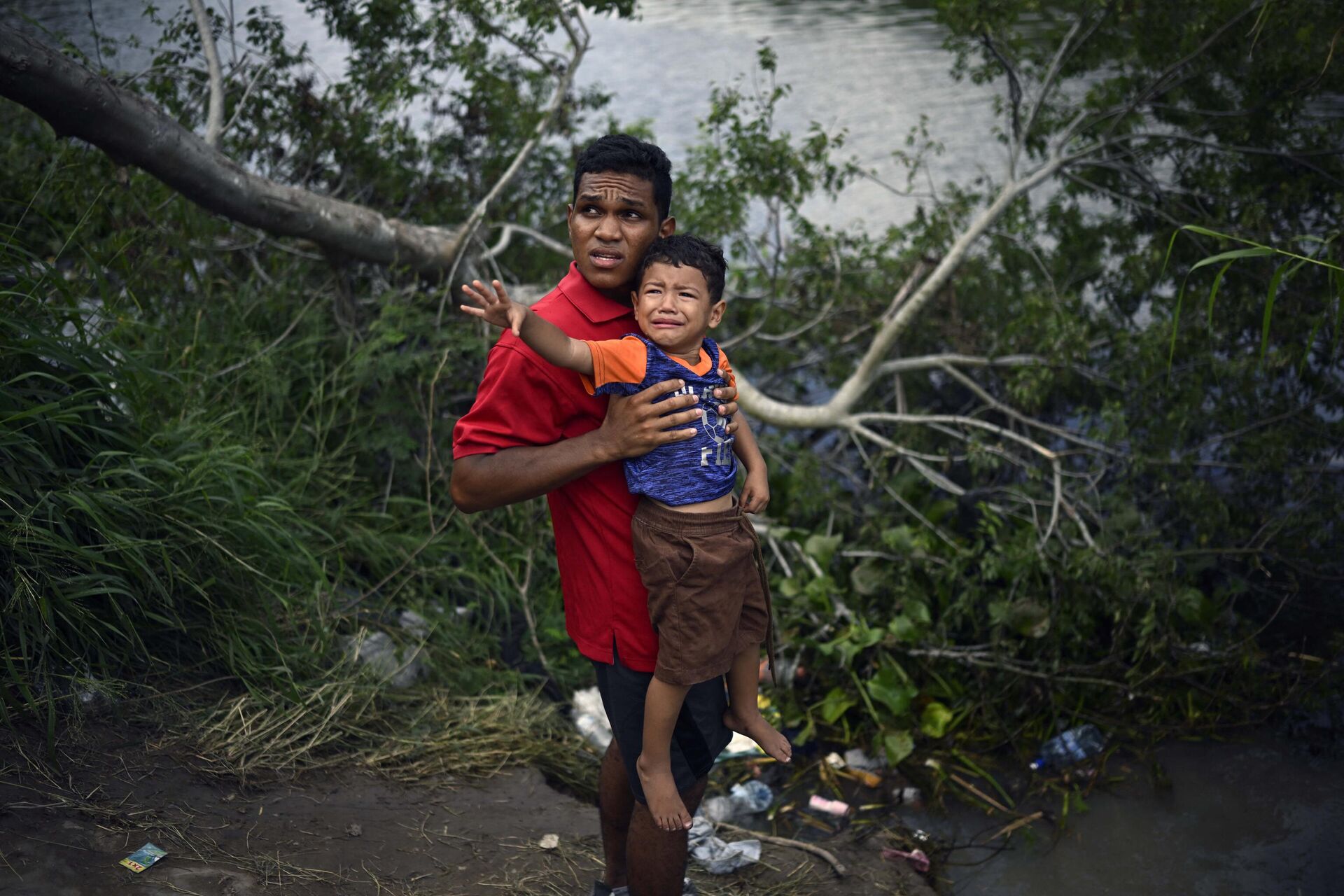
A migrant carrying a child tries to get to the US through the Rio Grande River as seen from Matamoros, state of Tamaulipas, Mexico, on May 11, 2023.
© AFP 2023 / ALFREDO ESTRELLA
Rumors and speculation regarding the change in the Biden administration’s immigration policy, most notably scrapping the Trump-era public health emergency order known as Title 42, have driven thousands of people to trek towards the sprawling migrant camp in Matamoros, half a mile from the US border. Title 42, which allowed the US government to turn away migrants at the border to prevent the spread of COVID-19, expired on 11 May.
Many migrants believed they might be allowed to enter the United States more easily once the restriction ended.
“They have come to believe that, when Title 42 is suspended, the US border will be open to them,” Juan Jose Rodríguez Alvarado, head of the migration institute of Mexico’s Tamaulipas state, told media.
He added that whereas the area with its shelters, apartments and tents used to house around 700 people, there are now more than 6,000.
Others, however, thought it would get more difficult to gain entry because restrictions would tighten under other US immigration rules, and these migrants rushed to the border ahead of the end of Title 42. Unlawful migrant crossings exceeded 10,000 per day earlier in the week according to US Customs and Border Protection (CBP).
Matters have been compounded by the temporary shuttering of 33 government migrant-holding facilities in Mexico in the wake of a probe into the circumstances surrounding a deadly fire in March at a detention center in Ciudad Juárez. Local and state authorities in Mexico are being urged by humanitarian organizations to do more to help the asylum seekers.
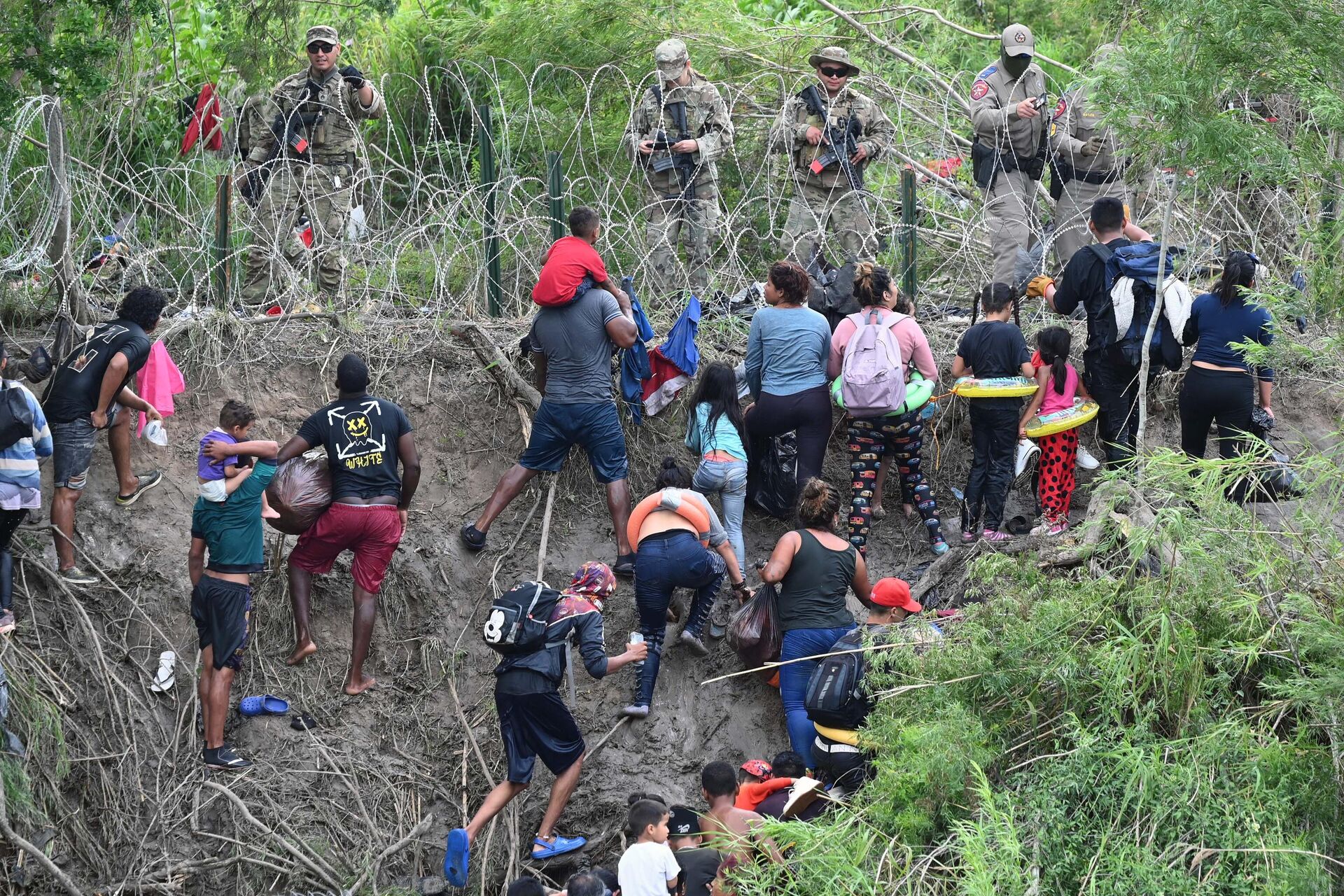
Migrant people try to get to the US through the Rio Grande as seen from Matamoros, state of Tamaulipas, Mexico on May 11, 2023.
© AFP 2023 / ALFREDO ESTRELLA
'Stranded by Migrant Policies'
Asylum-seekers massed at the US-Mexico border have been "stranded" by US migrant policies, claim humanitarian workers cited by media reports. With the end of Title 42, the US has returned to wielding a section of US code known as Title 8. There will now be “stiff consequences for irregular migration” as US Homeland Security Secretary Alejandro Mayorkas said earlier. These would include five-year and 10-year bars on reentry for those deported, along with potential criminal charges for people caught repeatedly trying to enter the United States.
Using such terms as “expedited removal”, he emphasized that the southern border was “not open”, urging those seeking entry into the US to use “lawful pathways”.
But the Biden administration’s new policy requires migrants to make appointments for their asylum interviews on a glitch-plagued CBP One app. Furthermore, these people can be disqualified if they already passed through another country where they could have applied for asylum, such as Mexico.
With Washington urging more action from Mexican authorities to clamp down on migrants heading towards the US, it was announced on 12 May that permits allowing undocumented migrants to cross Mexico were to be suspended.
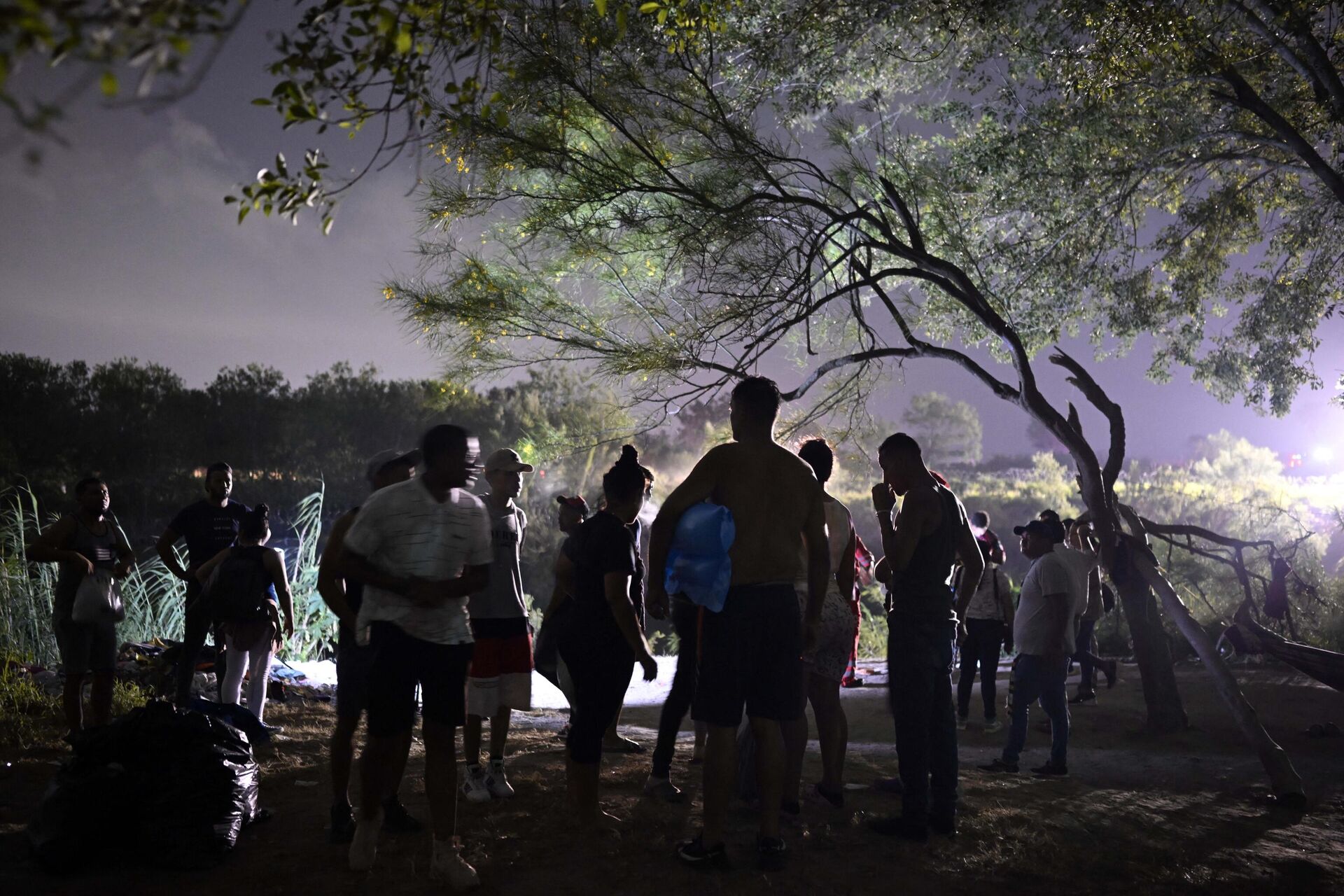
Migrant families wait before attempting to reach the United States via the Rio Grande river from Matamoros, Tamaulipas state, Mexico, May 11, 2023.
© AFP 2023 / ALFREDO ESTRELLA
However, analysts cited by US media warn that making a greater impact on stemming the migrant flow is hampered by the “very broad role of traffickers” who smuggle migrants, in cahoots with corrupt officials.
The Biden administration, which has been dogged by the border crisis from the start after dismantling much of Donald Trump’s tough migration policies, is now contemplating more restrictive asylum policies with new incentives for migrants to embrace lawful routes. For example, there are new family reunification parole processes for El Salvador, Guatemala, Honduras and Colombia, along with revamped ones for Cuba and Haiti. These will allow vetted individuals with already approved family-based petitions to be paroled into the United States, on a case-by-case basis. The United States said it was going to continue to accept up to 30,000 people from Venezuela, Nicaragua, Cuba, and Haiti each month in line with the expanded parole process.
But while these policies come into effect, the humanitarian crisis continues to take its toll on the exhausted and malnourished migrants flocking to the US-Mexico border, risking robbery and sexual abuse, Andrea Dunne-Sosa, Senior Regional Director for Project HOPE, warned.
She added:
"With Title 42 coming to an end, migrant shelters are in desperate need of additional support to address the health needs of migrant guests. There is an urgent need to strengthen the capacity of health workers and shelters to meet these needs and stave off a humanitarian crisis."

